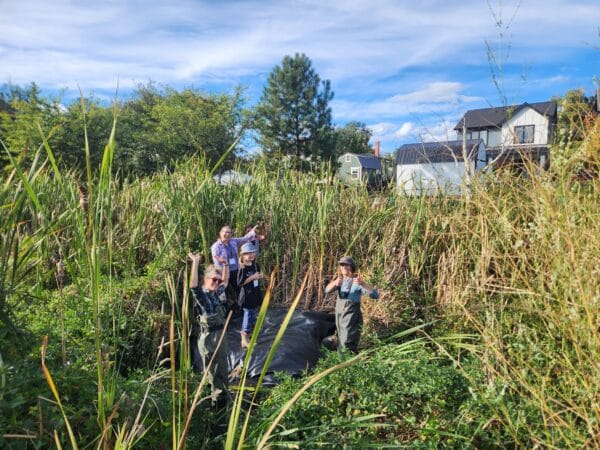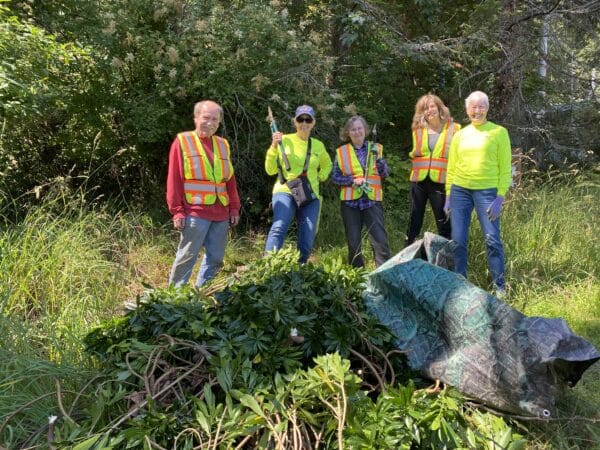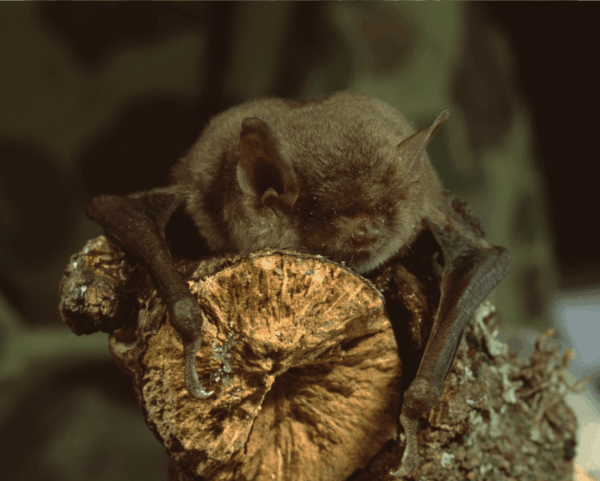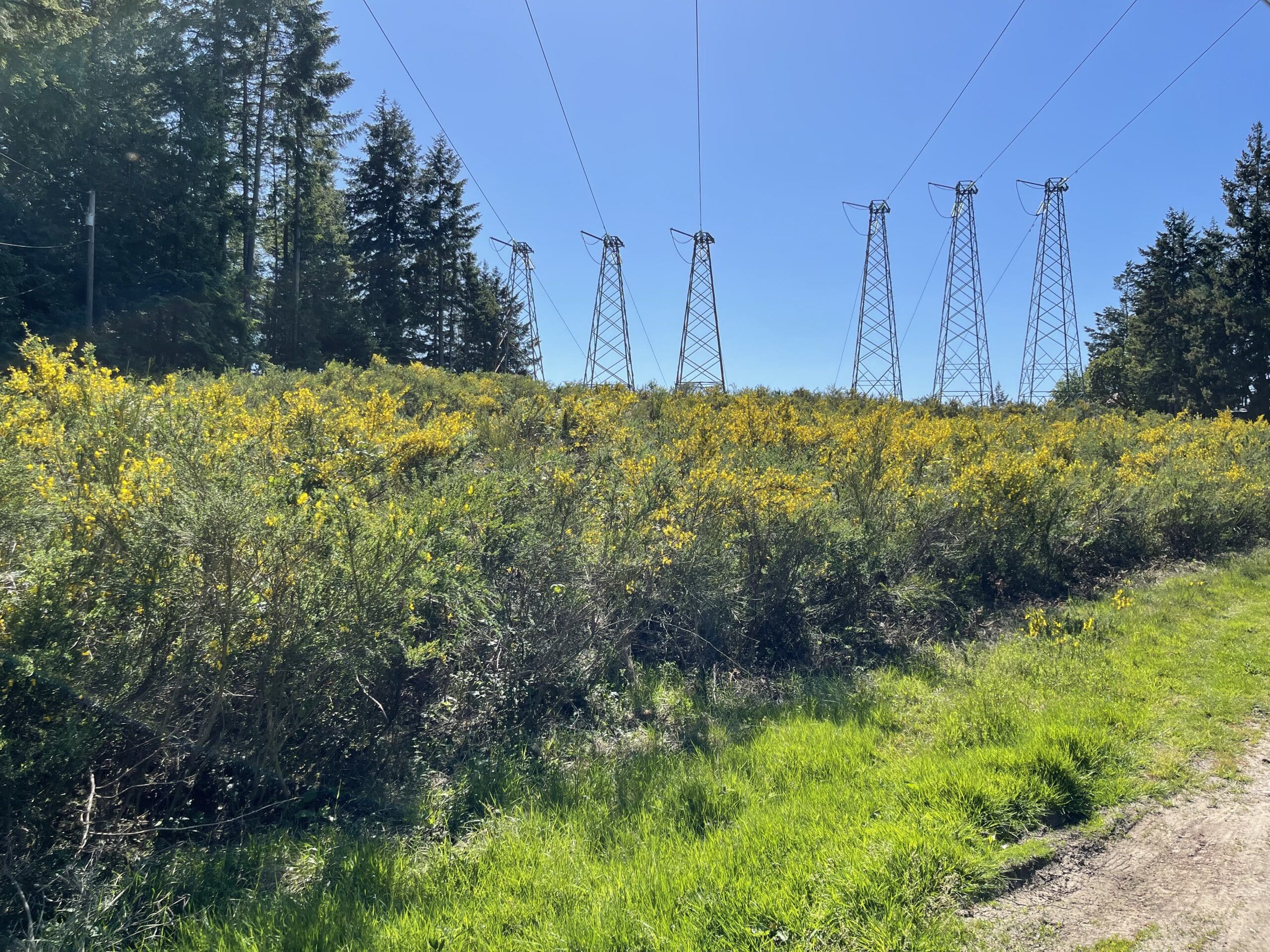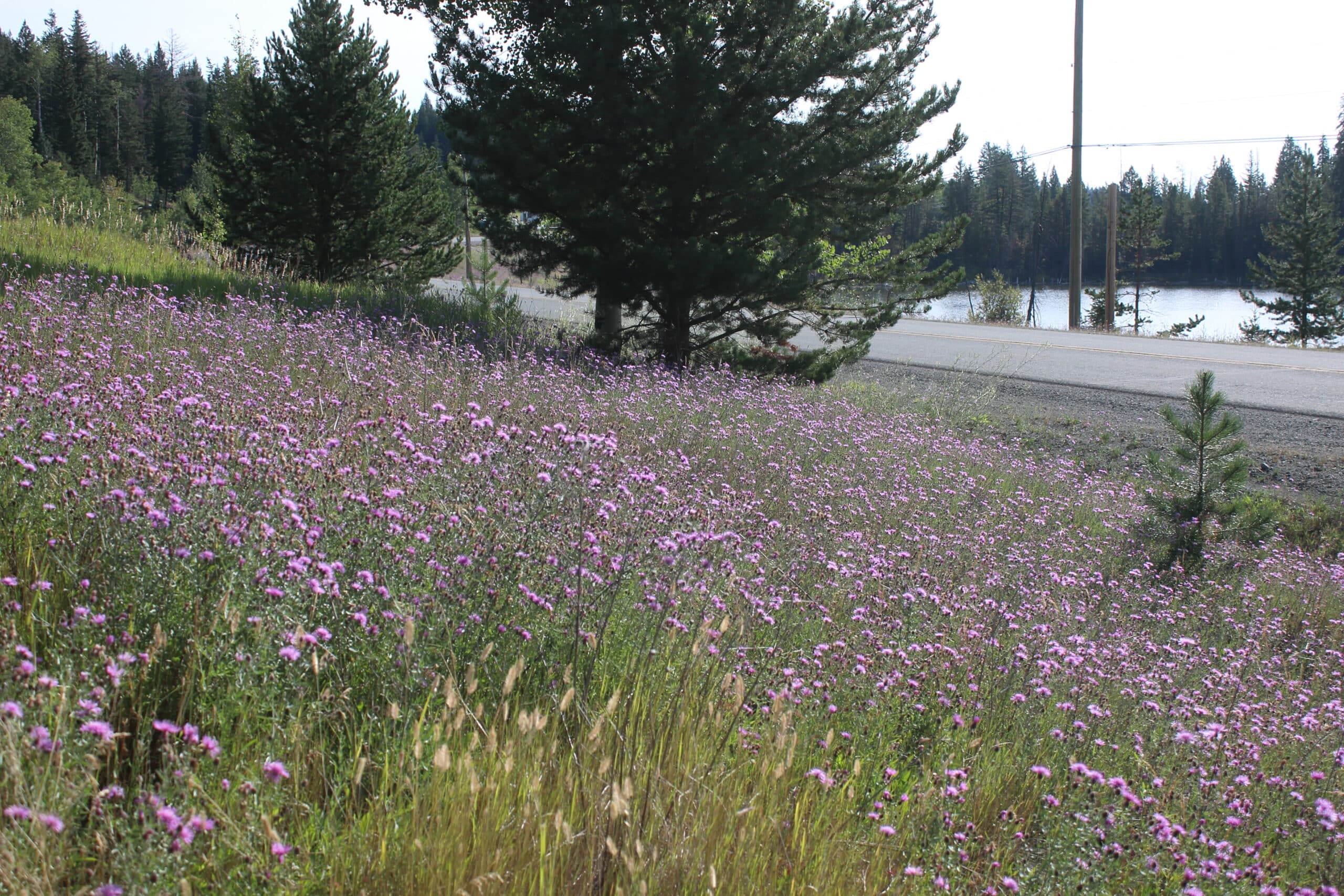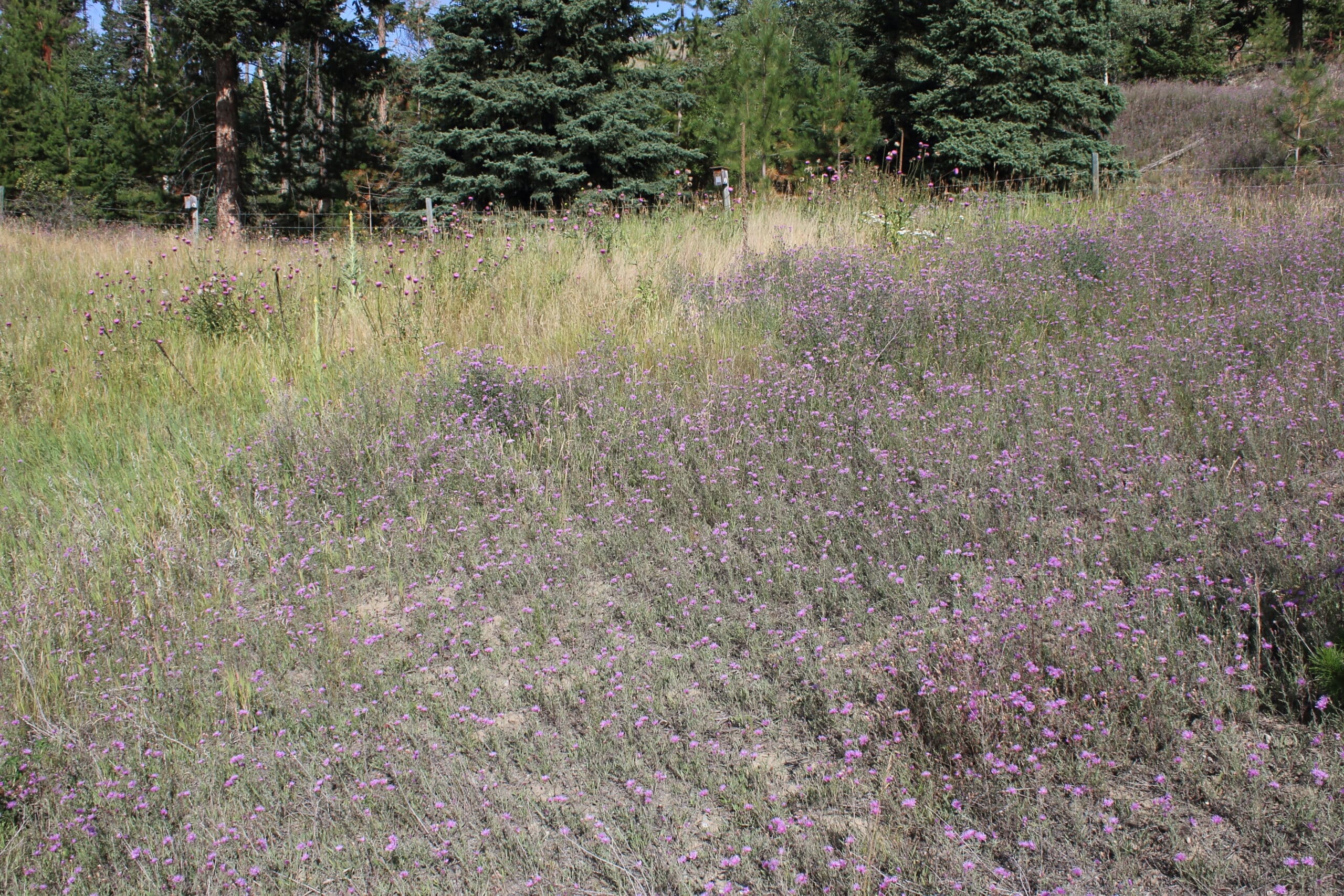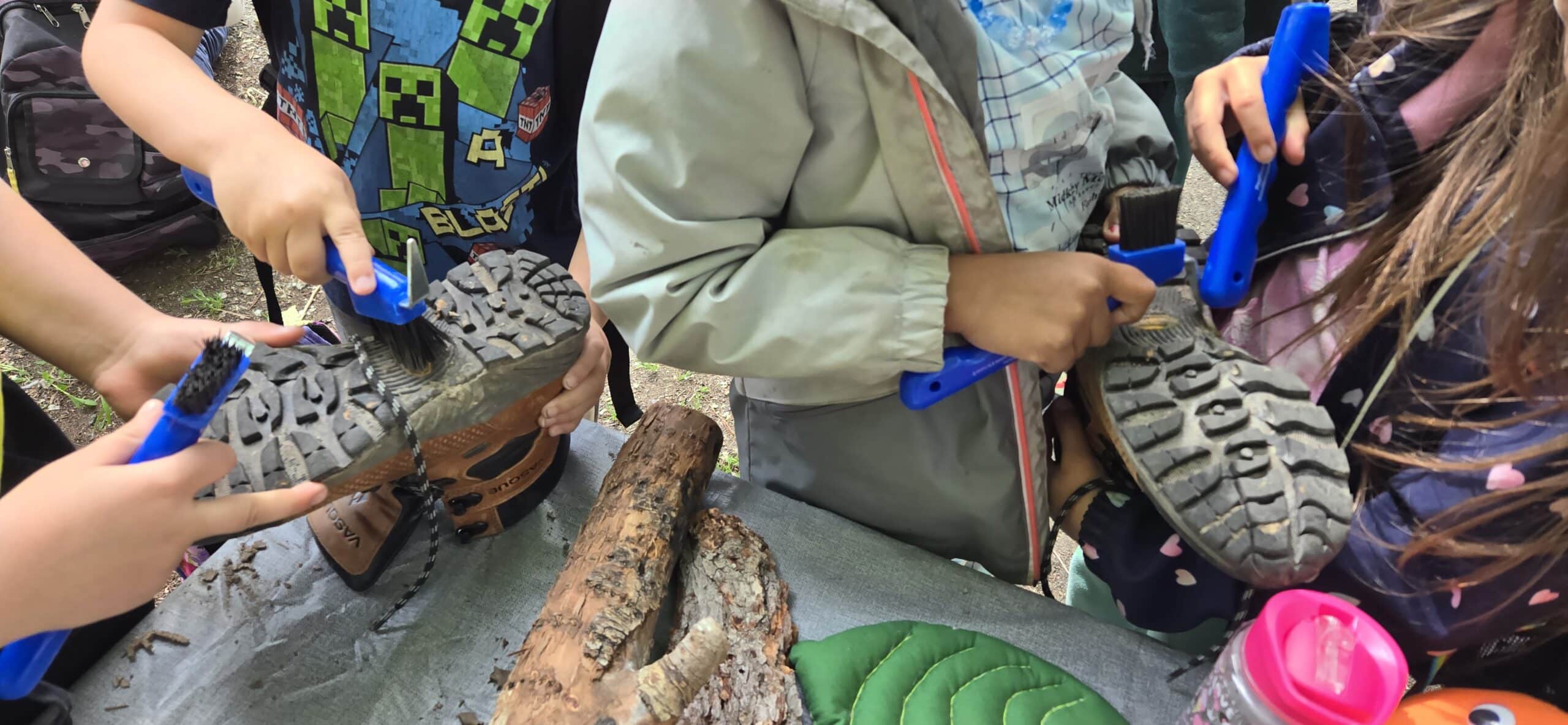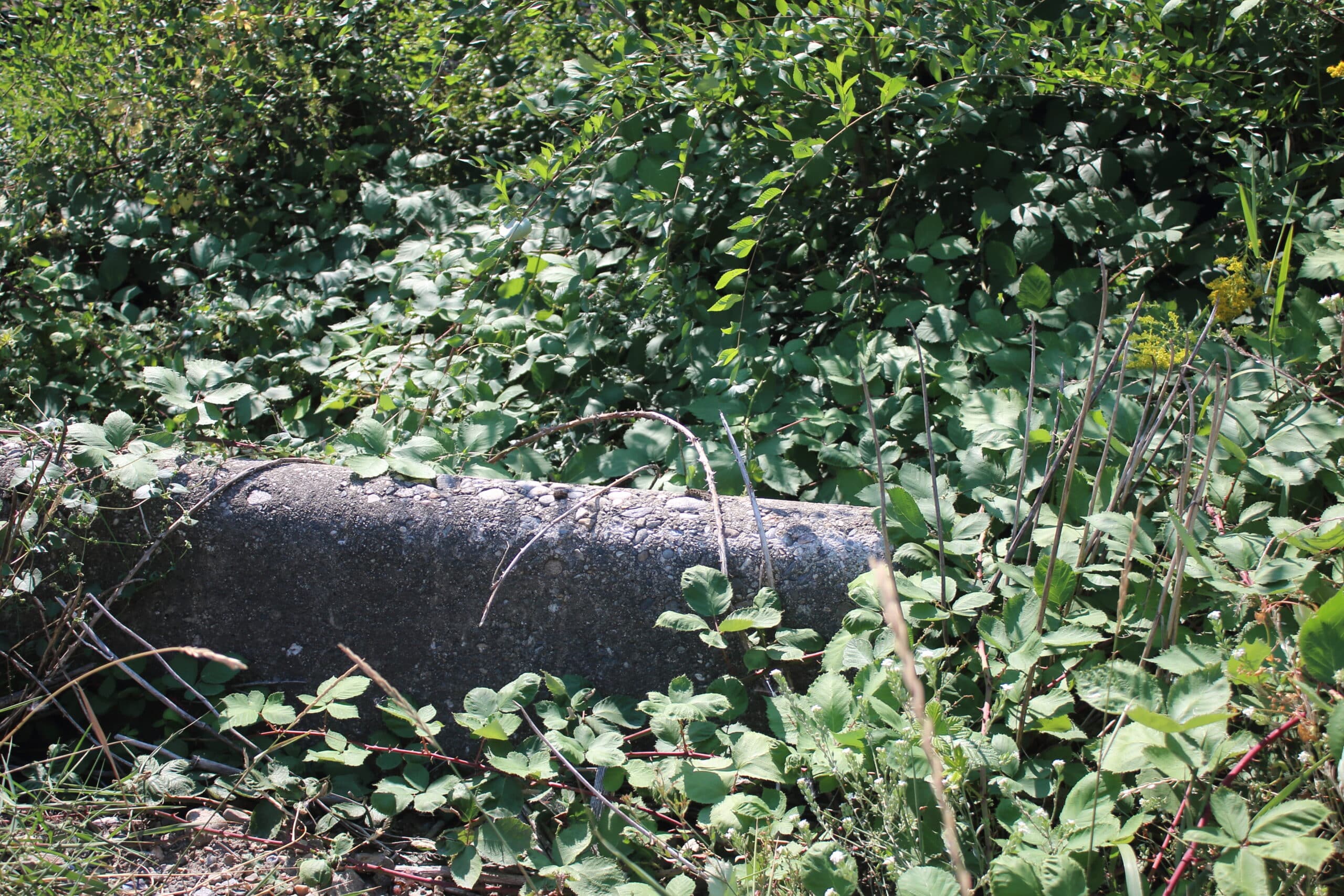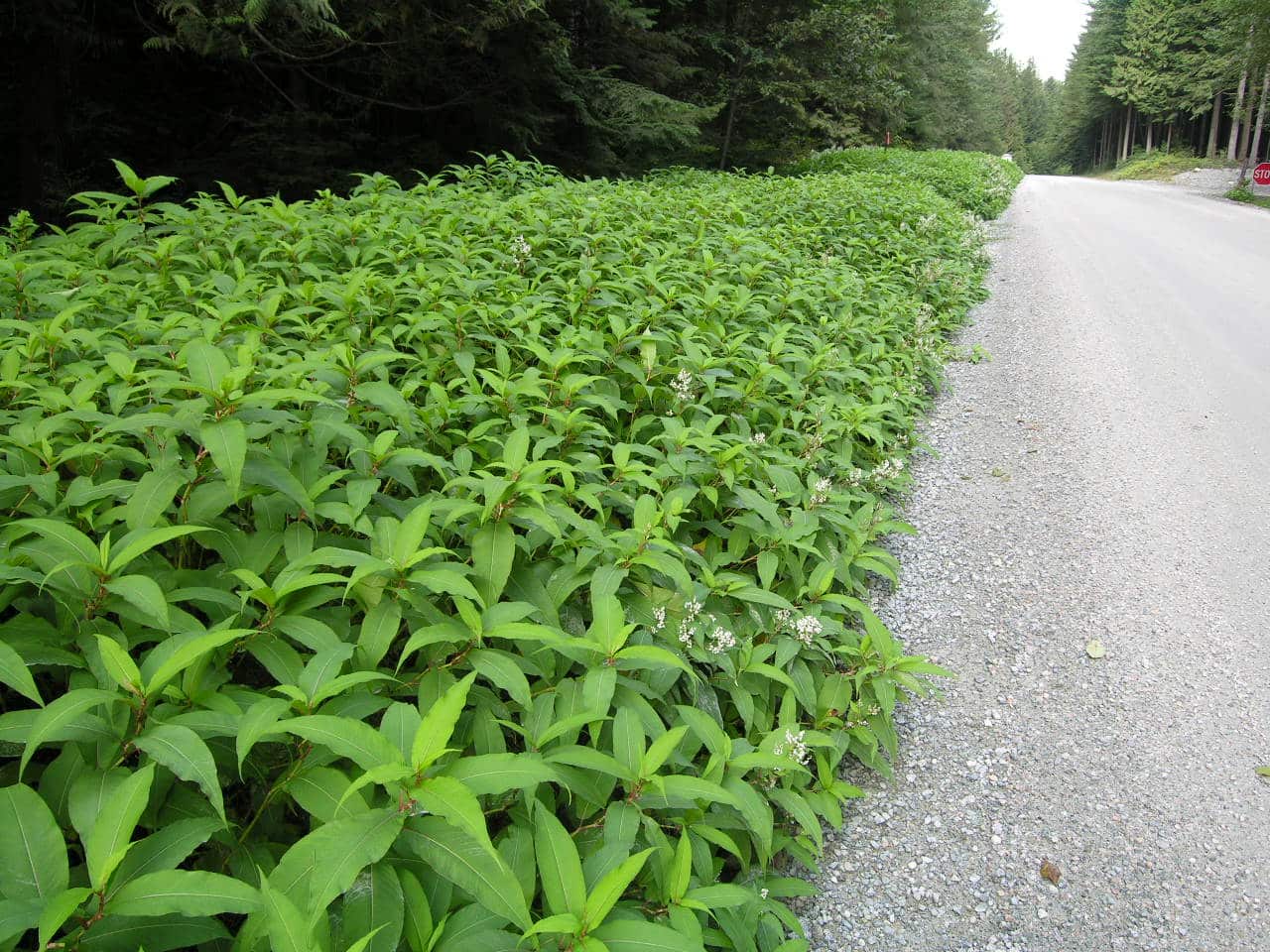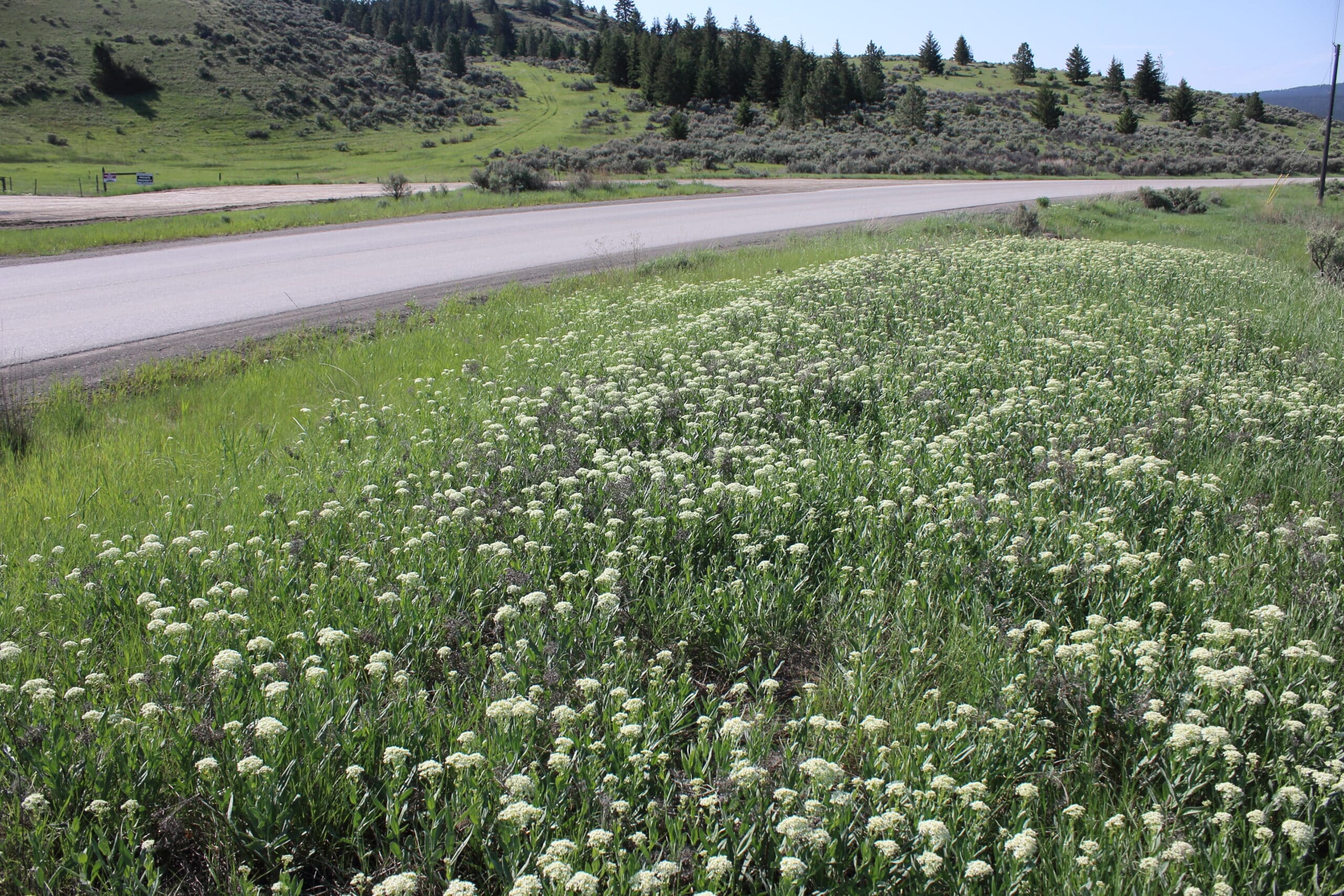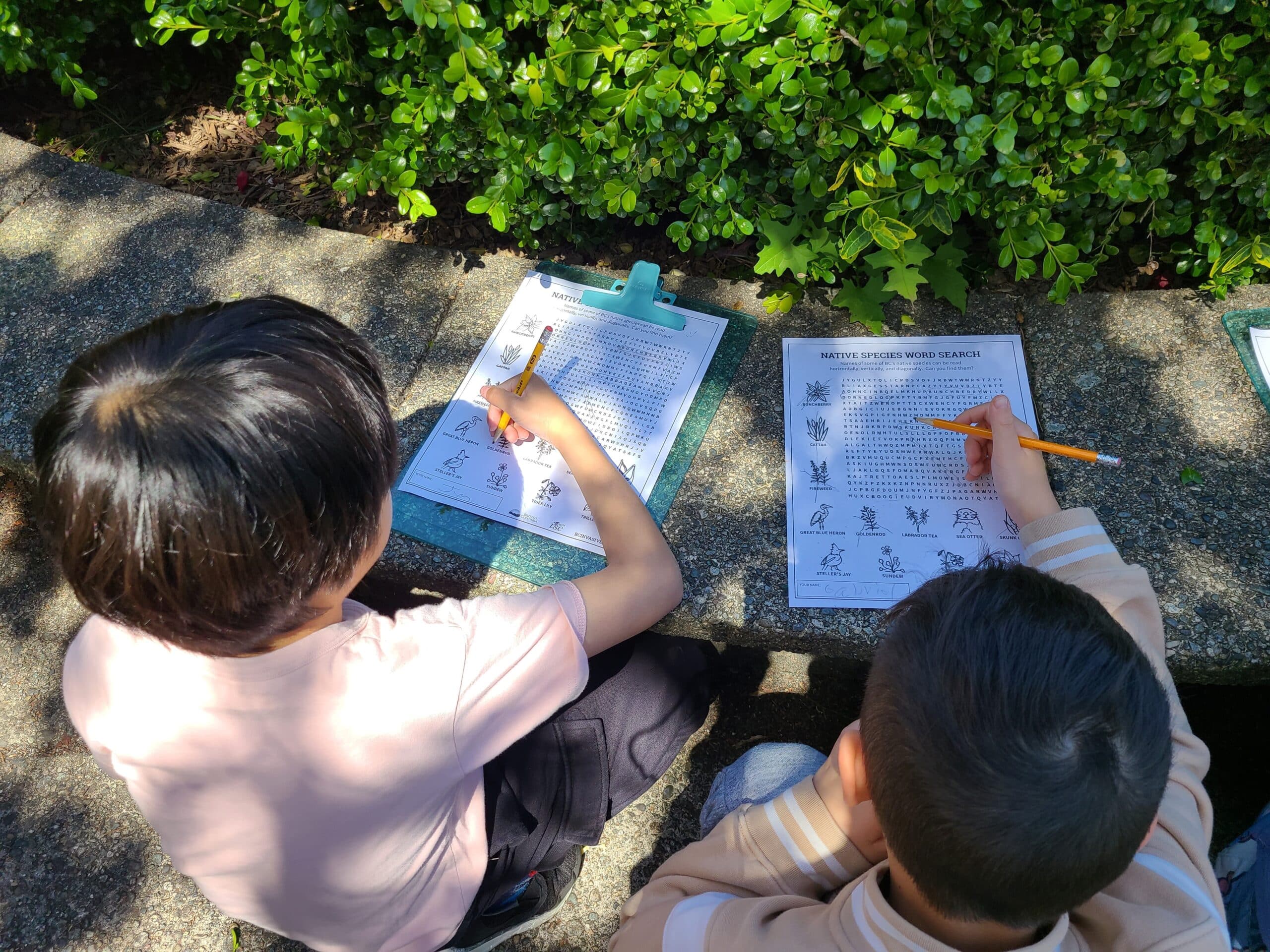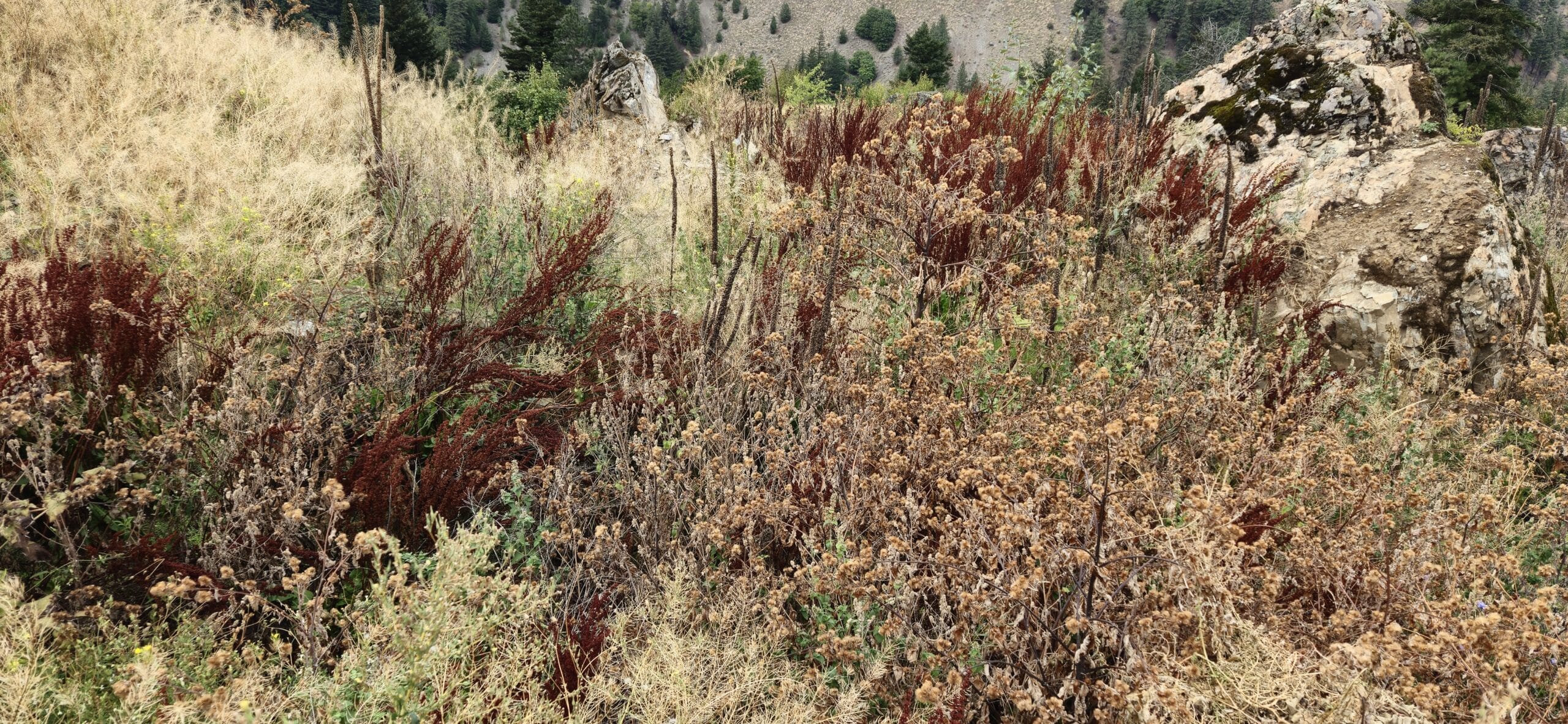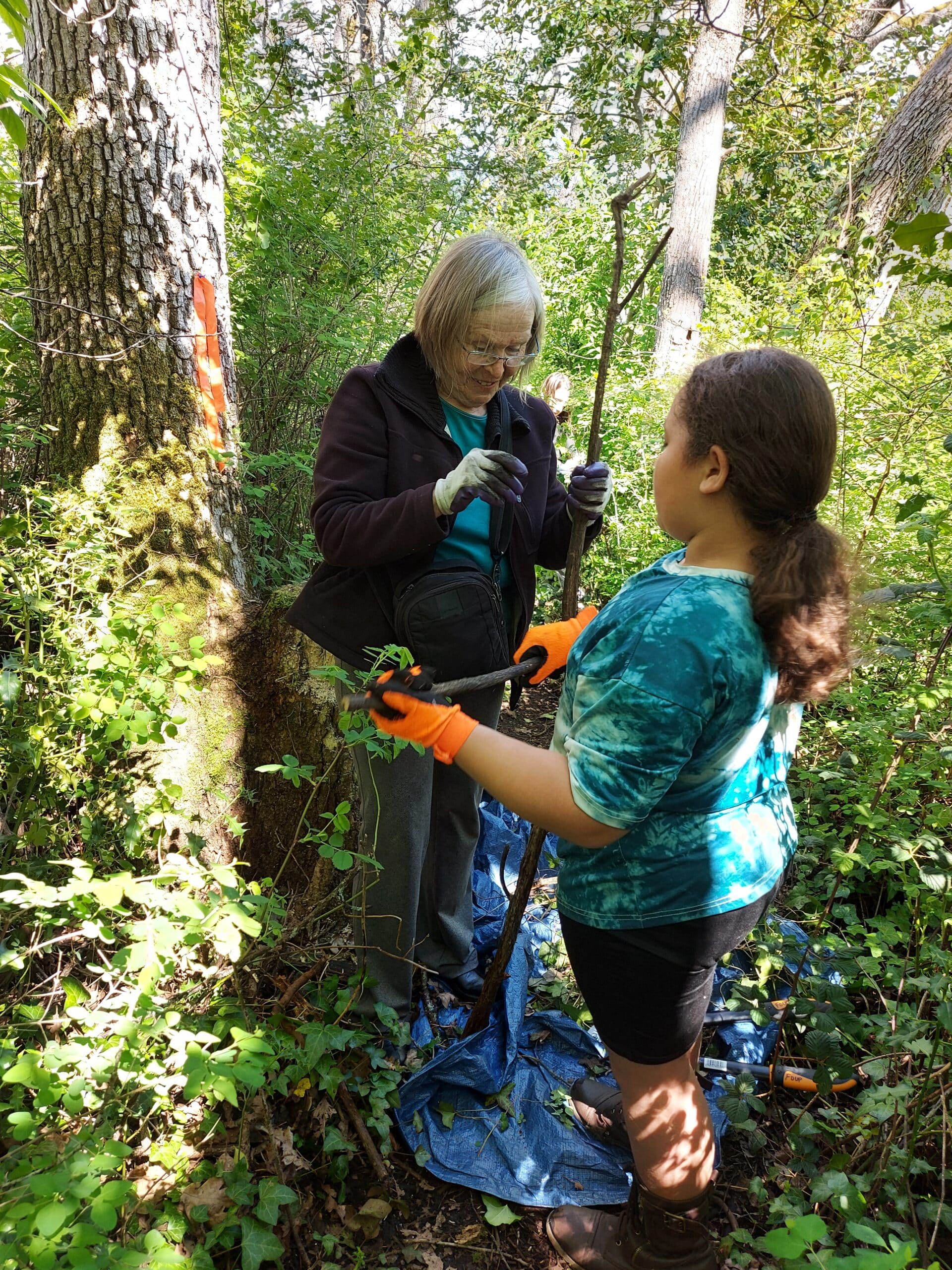By Lisa Houle | March 29, 2023
There are many reasons why invasive species practitioners choose to work in contract roles for ISCBC. A common outcome between them, however, is the positive experience encountered while on the job and the skillset learned. A frequent comment is that working with ISCBC has been instrumental in future job success.
The contracts referred to are the Job Creation Program (JCP) started in 2015, and StrongerBC (SBC) which began in 2020. JCP was an employment and skills training program in partnership with WorkBC, Ministry of Social Development and Poverty Reduction. Training crew members with skills to operate safely and competently on ground operations equipped them for entry level employment in any natural resources sector. SBC was a collaborative program with the Province of BC, supporting individuals in training and providing work for people whose jobs were impacted by the COVID 19 pandemic. Both contracts provided the extra hands needed to help protect BC’s lands and waters from invasive species, while training people to work in the environmental protection field.
Now that these former ISCBC contract employees have gone on to other positions, we’ve been catching up on their professional adventures and are proud to have been part of their job trajectory.
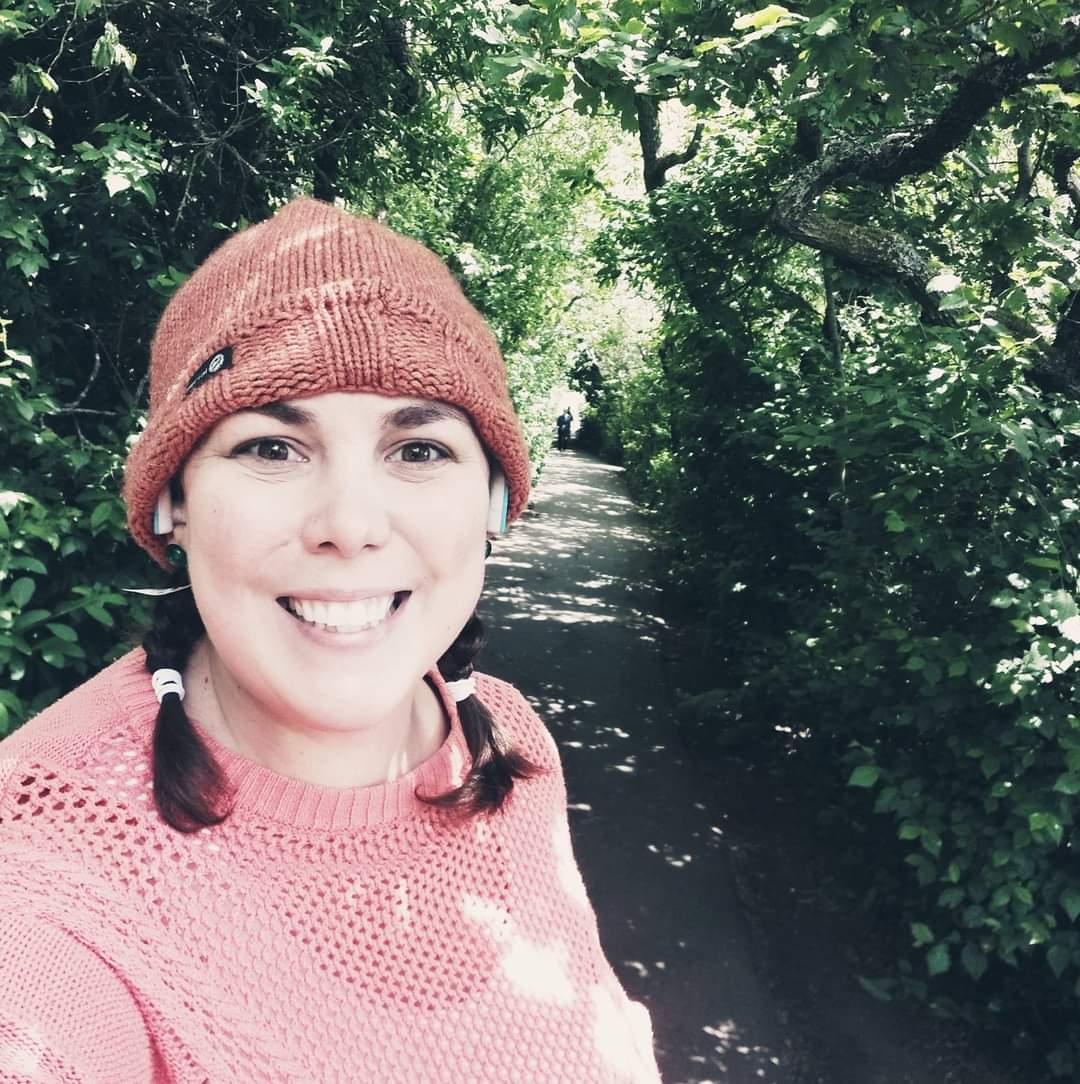
Lindi Anderson is a Senior Policy Analyst for the BC Public Service. With her background in natural resource management and environmental studies, her work focuses on province-wide land use planning. Lindi joined ISCBC in May 2017 as the Regional Coordinator for the Job Creation Program based out of Vernon. She was responsible for training, supervising, and managing, and planned weekly invasive species treatments and education/outreach events across the Central Okanagan with her team.
Why did you decide to take the job and what were you doing before this?
Prior to being hired by ISCBC I was working in northern BC as an Environmental Technician and GIS Specialist. I was also in the process of finishing my thesis for my Master of Natural Resource Studies and Environmental Management. I moved back to the Okanagan to finish my thesis and to be closer to my family – which was growing with nieces and nephews at the time – and took the position with ISCBC.
What was your experience like?
This experience was not like anything I expected. It challenged me as a leader, and it was exciting and meaningful as an environmentalist. I enjoyed working with people with various skillsets, adapting my teachings to meet their needs. Each person on my team left with new skills and a general understanding of the work required to manage invasive species, developing the confidence to talk about invasive species in an educational setting. It also felt good at the end of a field day to take the “after” photos of invasive clearing. Sometimes the change was noticeable and impactful after only one day’s work. I also developed social media public relations skills while showcasing the progress our team was making over the year.
Do you think your work with ISCBC helped you with your future role?
Yes, I think this job allowed me to grow as a leader, manager, and mentor and it fostered my development of diverse teaching techniques. I believe it also gave me the skillset I needed to get hired by the BC Public Service in my first role in government, as an Integrated Pest Management Officer in the Ministry of Environment and Climate Change Strategy.
Coolest experience on the job with ISCBC?
Oh, gosh! Was it when we used mats on top of the lake to tackle Yellow Flag Iris, or was it when we went to Silverstar Resort for the day to promote Play Clean Go to prevent the spread from bikes leaving the mountain? Honestly, I think it was being able to lead a team and have the independence to challenge my skills as a leader. It pushed me to be a better colleague and mentor. I also enjoyed educating members of the public – from kindergarten classes to university classes to famers markets – we got the public engaged and learning!

Brenden Dueck is a Range Agrologist for the BC Ministry of Forests in the Cascades Natural Resource District. He joined ISCBC in April 2022 as an Action Team Supervisor based out of Kamloops.
Why did you decide to take the job and what were you doing before this?
I was a student at TRU completing my degree in Natural Resource Science before starting at ISCBC. My decision was based on my passion to help reduce the spread of invasive weeds, as well as my love for working outdoors and bettering the world around me in whatever small ways I can!
What was your experience like?
My experience was extremely positive working for the Invasive Species Council. I was given tons of support and help to grow and be the best supervisor I could be – exactly what I was looking for!
Do you think your work with ISCBC helped you with your future role?
My role at ISCBC definitely helped me get to where I am today, teaching me valuable skills in natural resources management and giving me leadership and supervisory experience. The training and professional development I received definitely supported me in taking steps forward in my career.
Coolest experience on the job with ISCBC?
The coolest experience was being able to work with a large group of volunteers and the Grassland Conservation Council as we helped to reclaim portions of a sensitive grassland area in the Lac du Bois Grasslands. With the Action Team, we did a preliminary collection of bunchgrasses and an herbicide treatment of some larger patches of invasive weeds (Spotted Knapweed and Sulphur Cinquefoil). A couple months later we went back with the group of volunteers, replanting the bunchgrass plugs into the treated areas in an attempt to reclaim the areas and outcompete the invasive weeds.
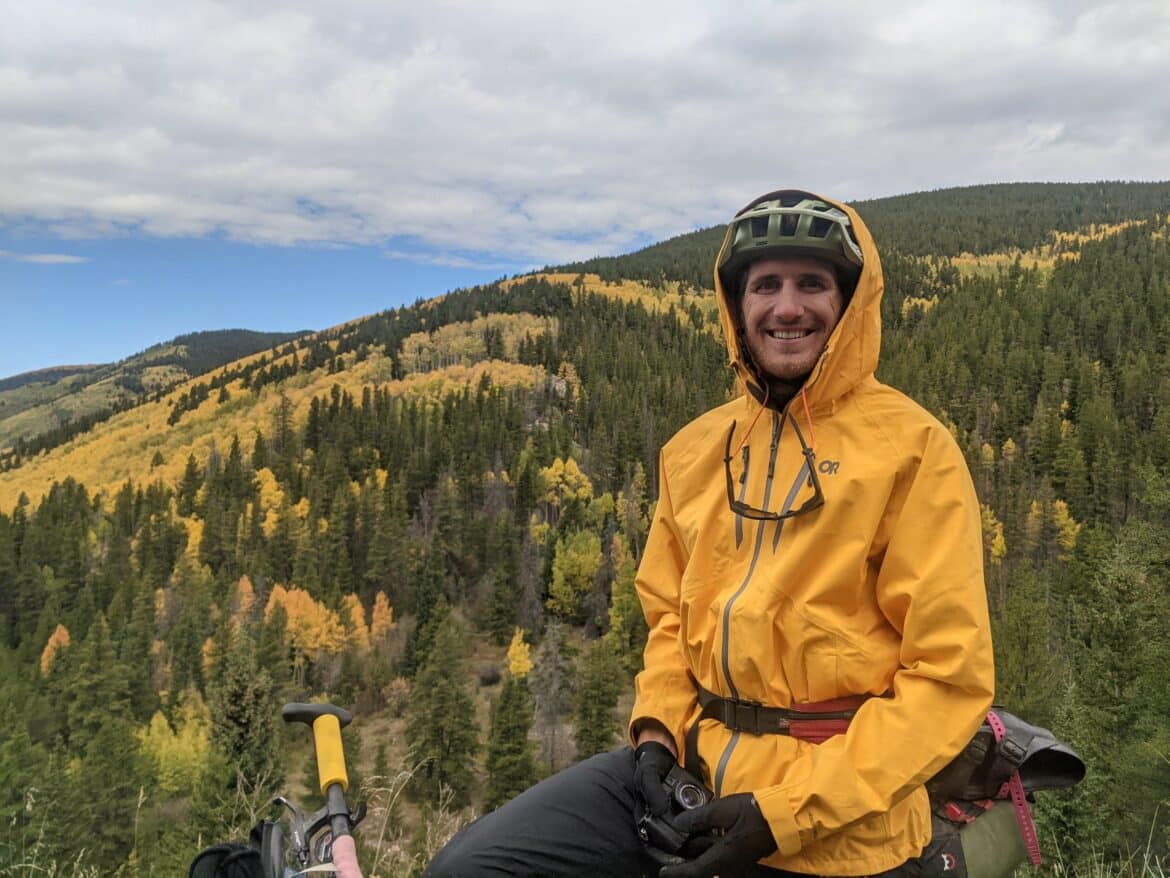
Harry Tudor is the Highschool Programs Manager for BCSEA’s CoolIt! Climate Education program. He started his employment with us as an Action Team Supervisor for the Nelson team in 2021 before landing his current role.
Why did you decide to take the job and what were you doing before this?
I was working in retail during the pandemic, unable to find work relevant to my degree in the town where I was living. As a recent B.Sc. Environmental Sciences graduate, I was happy to accept the Action Team Supervisor position.
What was your experience like?
The experience was great! I had the pleasure of working with two great, hardworking, fun teams and we were able to get a lot of work done while having a great time. Unfortunately, it was quite a smoky summer, so we ended up having to spend a lot more time doing office work than I expected. I’m very grateful to ISCBC for making that happen for us rather than cutting our hours down.
Do you think your work with ISCBC helped you with your future role?
I think my position at ISCBC helped develop my leadership skills, which has definitely helped me in this new role.
Coolest experience on the job with ISCBC?
The best experience was exploring the area I love with some great co-workers. We learned a lot about the area, the plants that surround us, and the risks that invasives pose to our favourite spots. Also, working with the local invasives organizations was wonderful – tapping into their knowledge and experience was a real pleasure.
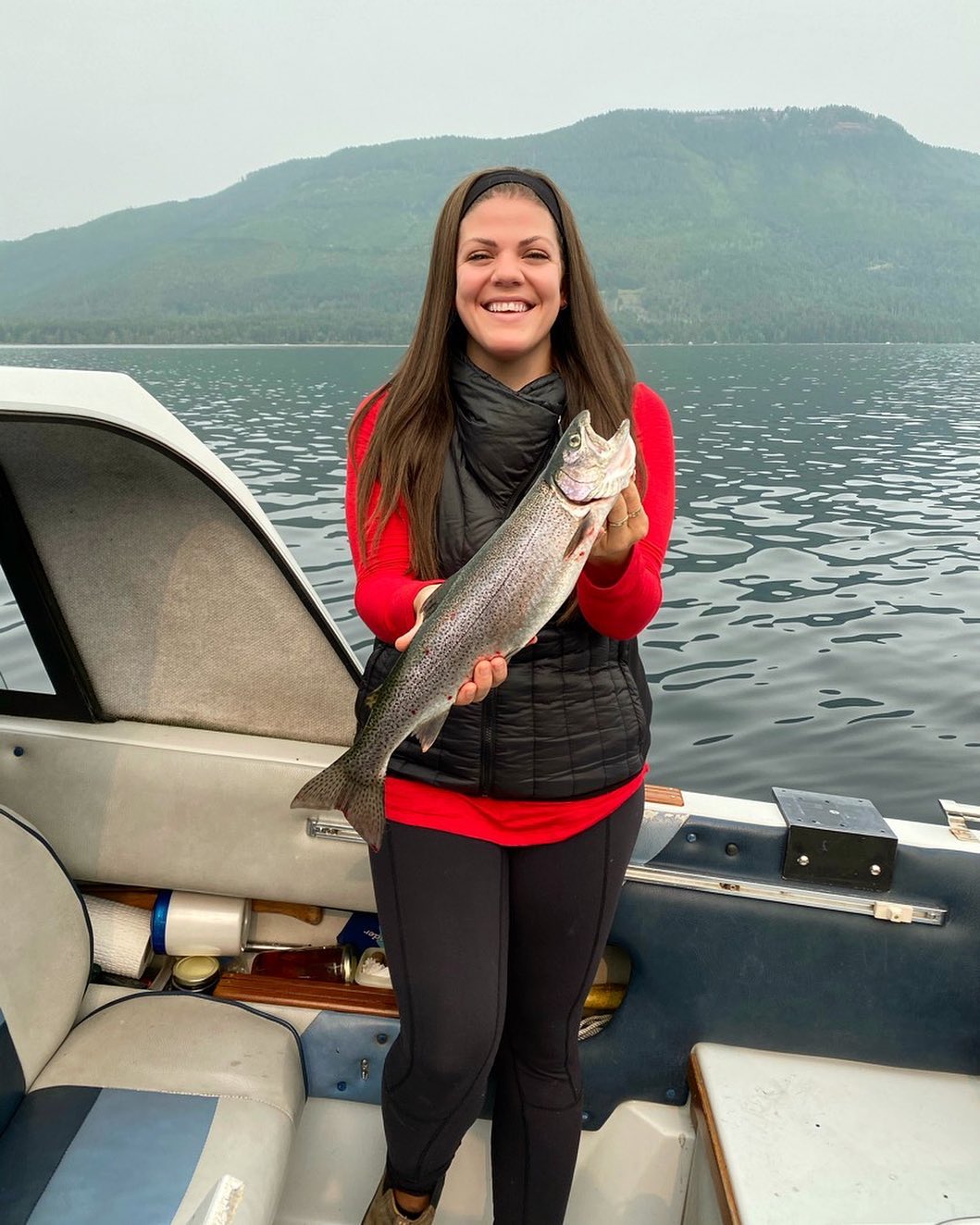
Callie Bouchard is the Outreach and Food Security Coordinator for Greenways Land Trust. She began her employment with ISCBC in April 2022 as an Action Team Supervisor based out of Campbell River.
Why did you decide to take the job and what were you doing before this?
I was working with Greenways Land Trust, a local non-profit environmental organization in Campbell River. I was part of an Urban Watershed Restoration team removing invasive species from sensitive riparian habitats, so naturally working with the Invasive Species Council was a great fit for me once my previous contract came to an end.
What was your experience like?
I really appreciated the amount of training and ongoing support from the Council. I was able to gain more experience and acquire new certifications to help me in my future.
Do you think your work with ISCBC helped you with your future role?
I think gaining more supervisory experience with ISCBC helped me with my ability to take charge and gain the confidence to manage several projects at once like I am now.
Coolest experience on the job with ISCBC?
My favourite thing about working with ISCBC wasn’t necessarily an experience, but more so the connections I made while working. I met so many incredible people and made some new life-long friendships with both my team members, and other supervisors during our training period in Williams Lake.
Were you a JCP or StrongerBC employee of ISCBC? We’d love to hear from you to feature you in our next article! Contact Lisa at lhoule@bcinvasives.ca
Lisa is a Communications and Outreach Coordinator at ISCBC. She values a diverse environment and connecting with others about environmental protection. In her spare time Lisa enjoys spending time at the ocean and beach combing for sea glass. You can reach Lisa at lhoule@bcinvasives.ca
Share



